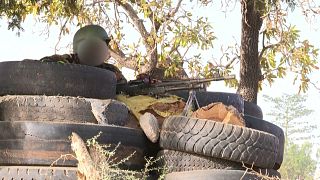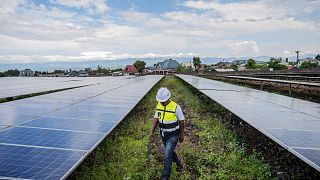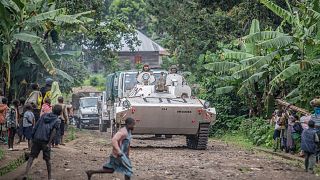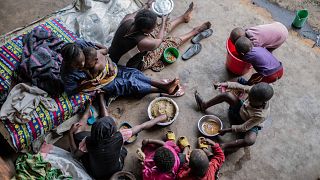Democratic Republic Of Congo
The state of emergency imposed in the eastern Democratic Republic of Congo (DRC) has come under scrutiny and debate.
It comes as more than 2,500 civilians have reportedly \been killed in two eastern provinces under siege, nearly double the number killed a year earlier.
Prime Minister Jean-Michel Sama Lukonde in an interview on Tuesday said, the state of siege and the army's operations have made it possible to "reduce the area of action of the negative forces". But elected officials are angry and the measure is increasingly being debated.
Lukonde told RFI on Tuesday, the authorities are considering "a reclassification of the zone (where the measure will be maintained), given that the abuses are taking place in specific areas.
Under his regime, the army has multiplied its offensives against strongholds of armed groups: some 600 clashes recorded between May 2021 and April 2022, after some 400 between April 2020 and May 2021, according to KST statistics.
"The ADF rebels have been driven out of many strongholds where training, indoctrination and attacks against army positions and civilians were organized," notes Captain Anthony Mualushayi, army spokesman in the Beni region (North Kivu).
At the end of November, the Ugandan army entered the DRC to participate in the hunt for the ADF, presented by the Islamic State organization (EI) as its branch in Central Africa, accused of massacres in the DRC since the 1990s and of recent jihadist attacks on Ugandan soil.
But this optimism is not shared by everyone. "Instead of containing the violence, the strikes by the Congolese and Ugandan armies have had the effect of widening the ADF's range of action, which now extends from the Ugandan border to the west of National Road 4," analyzes Reagan Miviri of Kivu Security Barometer also known as KST.
In addition to the Beni region, their usual area of exactions, the ADF have massacred civilians in the territories of Djugu and Irumu in Ituri.
Codeco militiamen attacked numerous displaced persons and humanitarian workers. And the M23 (March 23 Movement) rebels, defeated in 2013, have resumed hostilities against the army in North Kivu.
"It's been three months since the Ugandan (UPDF) and Congolese (FARDC) army strikes against ADF positions have stopped," Jules Masumbuko, a resident of Beni, told AFP.
Taking advantage of the truces, the armed groups "are reorganizing and taking back lost spaces, because there is a problem of manpower within the Congolese army," said Miviri, although the army has always claimed to have deployed more than 20,000 men in these destabilized areas of the east.
Between April 2020 and May 2021, 1,374 civilians were killed in attacks attributed mainly to the armed groups Allied Democratic Forces and Cooperative for the Development of Congo in North Kivu and Ituri, according to the
North Kivu and Ituri have been under a state of siege since May 6 2021, a measure that has given full powers to army and police officers to run the administration and wage war against the more than 100 armed groups that have plagued eastern Congo for more than a quarter century.











00:08
Vatican beatifies Congolese customs worker killed in 2007 for refusing bribe
01:49
UN warns of impact Sudan's humanitarian crisis is having on Chad
01:24
DRC and Liberia elected to serve 2-year term on UN Security Council
01:20
DRC: M23 rebels executed at least 21 civilians in Goma, Human Rights Watch says
02:03
Kabila resurfaces in Goma amid conflict and controversy
02:15
Former president Joseph Kabila returns to the DRC, ending political exile